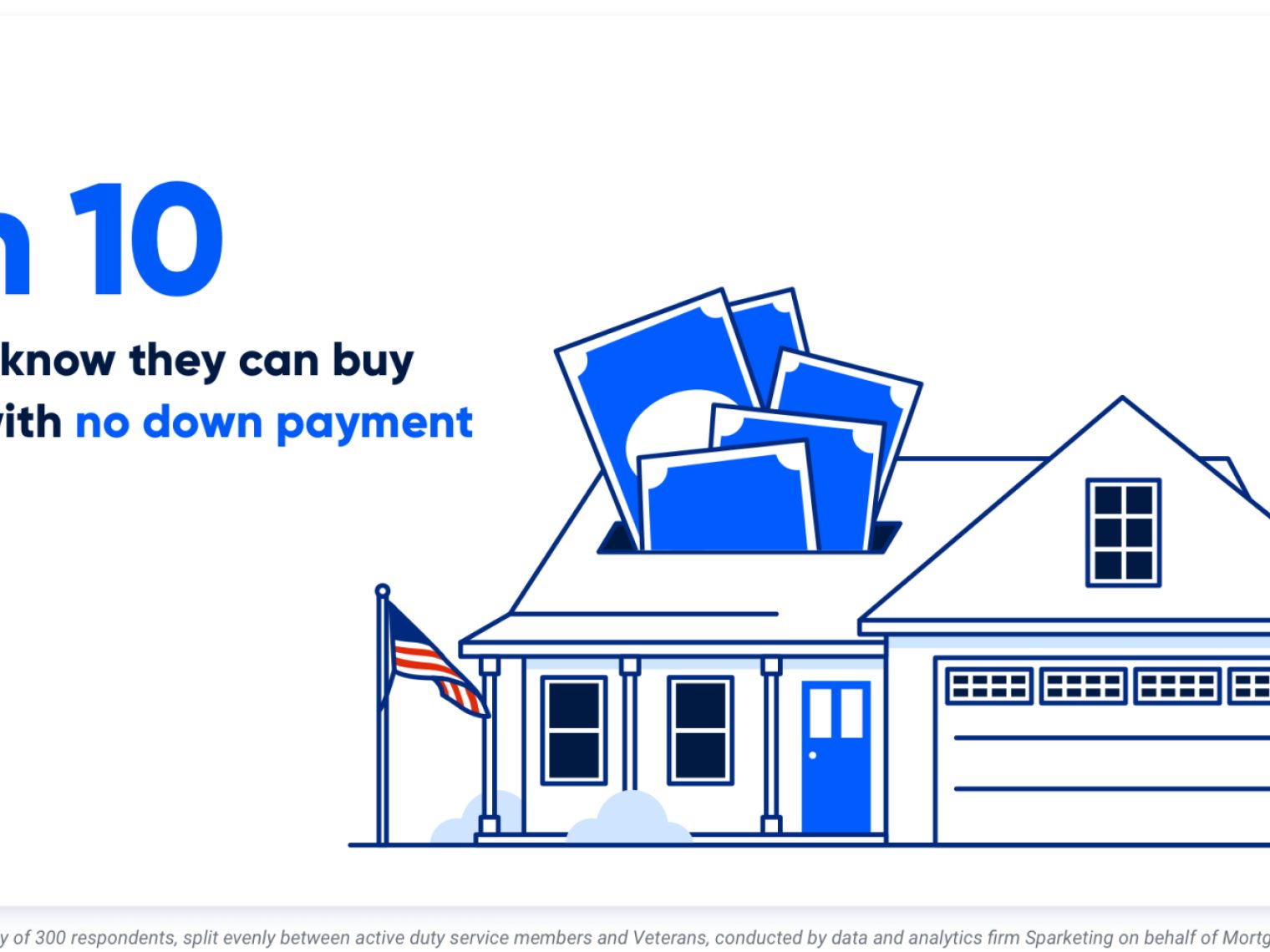Not all buyers will have a real estate agent to market their home. Purchasing a For Sale By Owner (FSBO) property can be an attractive option for many VA home buyers.
A home that’s labeled For Sale By Owner (FSBO) is exactly that – a property available for purchase that’s marketed by the homeowner rather than a real estate agent.
For VA homebuyers, it’s essential to understand the potential challenges and advantages that can come with a FSBO approach.
Advantages and Disadvantages of FSBO Homes
| Pros | Cons |
|---|---|
| Lower contract price | Paying real estate agent fees |
| Creative contracts | Complicated documents |
| More information | Price |
| Daily involvement | Repairs |
| - | Closing costs |
| - | Daily involvement |
Pros of FSBO
Let’s explore some of the potential benefits of buying a house for sale by the owner. We'll outline a few below:
Lower Contract Price
Avoiding agent commissions is one of the main reasons homeowners choose to sell their homes FSBO. The savings from not having to pay these commissions could potentially be passed on to the buyer in the form of a lower selling price. FSBO sellers may also choose to price their homes lower to attract more buyers or to expedite the selling process.
When the seller isn't paying a real estate agent, they may be able to list the price more competitively than that of similar homes, which can result in lower monthly payments for you.
Creative Contracting
FSBO sellers have great flexibility. Assuming VA lender guidelines are met, you have the opportunity to get creative with the purchase contract. For example, say the seller wants to remain living in the home for two weeks after the closing date. You can include this provision in your contract. By putting the seller directly across the table, you can put your heads together and find win-win solutions to any issues that may arise without a third party.
More Information
When real estate agents are involved, you're communicating with the seller through third parties. By breaking down the barriers of communication between buyer and seller, you may find out more about the history of the property than you would otherwise. You can brainstorm numerous questions to ask the seller and assuming they’re honest, you’ll have the opportunity to learn about the intricacies of the home.
Daily Involvement
Without a real estate agent as your go-between with the seller, inspectors, title company and other third parties, you'll be involved in the transaction almost daily to ensure your desired time-frames are met and you remain on schedule. But as you can imagine, this could also be considered a con if you're extremely busy and do not have the available time.
Cons of FSBO
Despite the advantages, FSBO homes have some considerations for VA loan homebuyers:
Paying Real Estate Agent Fees
Generally, the reason a home is listed as For Sale By Owner is an attempt to cut costs. On regular purchase contracts, the seller pays for all real estate agent fees, adding up to a significant chunk of money. By listing the home on their own, sellers look to avoid paying these fees.
This doesn't mean you can't use a real estate agent. But, the seller would likely ask you to be responsible for your own agent's fees. With a VA loan, however, Veterans cannot pay for any brokerage or agent fees, meaning the agent the Veteran uses is unlikely to be paid at the end of the day.
Complicated Documents
Most of us haven't drafted an extensive contract for a purchase as important and expensive as a home. This is one of the major benefits of using a real estate agent.
As we discussed above, you aren't prohibited from using a real estate agent when purchasing an FSBO home, it's just likely going to come out of your pocket instead of the seller's. With that being said, if you work with a knowledgeable VA mortgage expert, they can notify you of specific items that will need to be included in a contract to be able to move forward. Having this guidance may be all you need or want. It'll just depend on what you are comfortable with drafting.
Price
Some sellers may assess the sentimental value of the property and, as a result, list the home above market value. A sentimental seller may also be less willing to negotiate on certain seller concessions that are common to see when working with a real estate agent.
In reality, you would like to pay below market price since most market comparisons include compensation for the agent in the sales price. If you aren't receiving the services of an agent, you shouldn't have to pay for it anyway.
Repairs
If you enter into a contract on an FSBO home, an appraisal will be conducted. If the appraisal notes any required repairs, the seller must make the repairs at no cost to you before a closing can occur.
Many FSBO sellers wish to sell a home "as-is," so they have little out-of-pocket cost. If the home is in good shape and doesn't appear to need any major repairs, this may not be an issue. But, if you're looking at older homes or a home that may need repairs, you'll want to discuss with the seller in advance their willingness to fix repairs noted as necessary on an appraisal, as this would be a deal breaker.
Closing Costs
On many VA mortgage purchase contracts, a seller and buyer negotiate the contract to reflect the seller paying all or a portion of the buyer's closing costs. An FSBO seller doesn't have the guidance of a real estate agent on contract terms, and you may be greeted with some resistance when asking for the seller to pay your closing costs. If you are unable to negotiate seller-paid closing costs, you'll have to pay them out of pocket at closing.
Daily Involvement
The typical length of time a buyer is under contract is approximately 30 days from the date a contract is received. If you don't have the time to take daily phone calls or meetings, then it may be worth it to pay a real estate agent to handle day-to-day tasks in the homebuying process.
Tips for Pursuing a FSBO
After considering the pros and cons of VA FSBO homes, here are some tips to help guide you through a FSBO home purchase.
1. Hire a Buyer’s Agent
Just because the seller isn’t represented by a real estate agent doesn’t mean the buyer can’t be. It’s nearly always in a buyer’s best interest to hire a real estate agent before purchasing.
If you’re using a VA loan, remember that the seller must pay your agent’s commission. Make sure your seller and your agent are fully aware of this fact before signing a purchase contract.
2. Get a CMA Before Making an Offer
Whether buying a FSBO or an agent-listed property, all buyers should obtain a Competitive Market Analysis (CMA) before making an offer.
A CMA is a short report about the value of other homes in the area, and it’s an excellent tool for determining a property’s fair price. If the FSBO list price is way above the CMA value, you may be able to bargain the owner down. Your buyer’s agent should conduct a CMA before you make an offer.
3. Don’t Skip the Inspection!
If you decide to make an offer, don’t forget to add a home inspection contingency to your contract.
This little loophole gives buyers an “out” and allows you to renegotiate with the seller if the inspector discovers problems with the property. The buyer is typically responsible for ordering and paying for an inspection.
According to the Department of Housing and Urban Development, the cost of a professional inspection typically ranges from $300 to $500 and is highly worth it.
Think of it this way: A home is likely to be the single largest purchase of your life. Why not get as much information about that purchase as possible?
Don’t let the challenges involved with a FSBO sale limit your options. Simply prepare yourself for what’s ahead with a thorough understanding of the FSBO process.
Reach out and talk to a VA loan expert today!
Related Posts
-
 VA Loan Down Payment RequirementsVA loans have no down payment requirements as long as the Veteran has full entitlement, but only 3-in-10 Veterans know they can buy a home loan with zero down payment. Here’s what Veterans need to know about VA loan down payment requirements.
VA Loan Down Payment RequirementsVA loans have no down payment requirements as long as the Veteran has full entitlement, but only 3-in-10 Veterans know they can buy a home loan with zero down payment. Here’s what Veterans need to know about VA loan down payment requirements. -
 5 Most Common VA Loan Myths BustedVA loan myths confuse and deter many VA loan borrowers. Here we debunk 5 of the most common VA loan myths so that you can borrow with confidence.
5 Most Common VA Loan Myths BustedVA loan myths confuse and deter many VA loan borrowers. Here we debunk 5 of the most common VA loan myths so that you can borrow with confidence.

